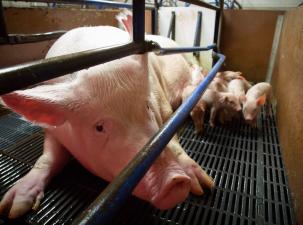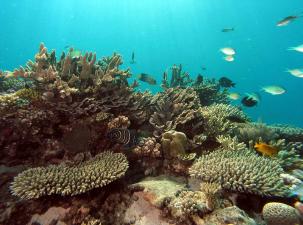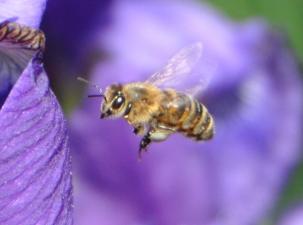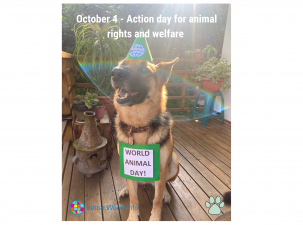Animals

➡️ Animal Rights, Endangered Species, and Exploitation
Animals have lived on our planet around 600 million years longer than humans. Yet since 1970, humans have managed to wipe out 60% of animal populations. Poaching, deforestation, habitat loss, pollution, and climate change, all man-made issues, are the primary causes. Unable to adapt fast enough to their rapidly changing environments, many species are dwindling in numbers or have already become extinct entirely.
Jump straight to our resources on ➡️ Animals
Explore our comprehensive guides on -
-
Animal Rights Organisations
Animals face a growing number of challenges in our fast-paced, economically driven world. Before it is too late, we must protect the most vulnerable species to safeguard our planet and its delicate ecosystems.
The importance of animals to the health of our planet cannot be understated. Bees, butterflies, and other insects, through pollination, help farmers to feed the world. Birds distribute seeds, shaping our landscape and promoting biodiversity. Earthworms and other invertebrates help keep our soils fertile and regulate the carbon and nitrogen cycles. Many animals also act as a form of pest control, preventing the decimation of agricultural crops.
All animals play essential roles in the food chain and the balance of important environmental systems. With global biodiversity being altered at an unnatural rate, the time for action is now.
As freedom and civil rights hero Gandhi once said -
“The greatness of a nation and its moral progress can be judged by the way its animals are treated.”

What are Animal Rights?
Animal rights recognise that animals are sentient beings with emotional, physical, and social needs. These rights aim to legally ensure that animals are given a life free of exploitation and suffering.
The animal rights movement is growing fast. The number of people now practising a fully vegetarian or vegan lifestyle is over 300 million, and increasing every year.
With 99% of farmed animals in the US confined to the harsh conditions of factory farming, the intensive farming industry and Big Meat have much to answer for.
Animal activism fights against the cruelty of animals, factory farming, exploitation, the fur trade, animal testing, puppy mills, the entertainment industry, habitat destruction, and many other issues regarding animal welfare.
Speciesism is a brutal concept that categorises some animals as inferior to others and, therefore, condones the harsh treatment of those classed as less worthy.
Measuring animal welfare is no easy task. The Voiceless Animal Cruelty Index (VACI) considers the number of animal slaughters, their treatment, the rate of meat and dairy consumption, and the animal protection laws and regulations in place. According to VACI, Tanzania and India take the top spot, with Kenya, Nigeria, and Sweden closely behind. Australia, Belarus, and the United States are the top three worst offenders.
Should Animal Testing be Banned?
Animal testing, experimentation, and research have various objectives. The most common are finding cures for diseases, assessing toxicology, observing psychological responses, and cosmetics testing. In the US alone, 110 million animals are used annually for this purpose. Supporters of animal testing argue that many life-saving treatments have been developed as a result and that no alternative would have sufficed.
Animal rights activists disagree and highlight the pain and suffering that these animals needlessly endure. The majority of these animals are treated like disposable lab equipment, and many die painful deaths. Research tells us that most of this testing does not actually contribute to medical progress - 92% of treatments successful in animals fail in human trials. Sadly, the regulations and protections in place do not apply to the use of small animals such as mice, rats, birds, and reptiles.
New laws banning animal testing in the cosmetics industry have been implemented in 42 countries around the world. A small victory for the animal rights movement, but much more progress is needed.

How Bad is Wildlife Trafficking?
The illegal wildlife trade is driven by greed and huge profits. Worth up to $23 billion, the practice pushes already at-risk animals even further to the brink of extinction. Trafficking of animals is the single largest threat to the future of the planet's most threatened species – and not all of it is illegal.
The threat does not stop at animals either. Thousands of wildlife rangers are murdered every year. Global security becomes compromised as organised crime networks controlled by dangerous gangs and militants use their profits to purchase weapons and control vast areas of land.
Poaching of animals is by far the biggest issue. Elephant ivory, rhino horns, shark fins, and pangolins bring in the biggest profits and are, therefore, the most at risk. An unbelievable 20,000 African elephants are killed by poachers every year. Tigers, lions, snow leopards, exotic birds and fish, turtles, reptiles and many others are either hunted or smuggled to be sold as food, pets, decorations, clothes, souvenirs, and medicine.
The implications of this trade are widespread and hugely detrimental to species conservation and local communities. It is also a driver of corruption, inequality, and political instability. Wildlife generates tourism, it creates jobs, sustainability, and brings ecological and cultural benefits to local people. The truth is that these animals are worth more alive than dead. One single elephant over its lifetime can bring more than $1.6 million in tourism revenue and benefit the community. We need strong laws prohibiting all forms of wildlife trade, greater protection of park rangers, removal of key trade routes, and harsh punishment for those involved.
As consumers, we can say no to exotic pets and animal products. We can also report businesses and individuals and be smart tourists avoiding places offering experiences like tiger selfies or rare specialities like shark fin soups.

How is Biodiversity Loss Affecting Animals?
Biodiversity loss refers to the decline in the biological diversity of all living things on the planet. It encompasses endangered animals but also the loss of their habitats, their food supply, and everything around them that they need to survive.
The WWF’s 2022 Living Planet Report concludes that we are in the midst of a biodiversity crisis. Findings reveal a 69% reduction in wildlife populations globally between 1970 and 2018. Pesticides, drought, habitat destruction, pollution, and climate change have resulted in a devastating decline in bee populations in recent years. So much so that in the U.S., beekeepers have lost, on average, 40% of their honey bee colonies.
Humans have significantly impacted two-thirds of our natural environment. Habitat destruction through deforestation, the logging industry, wildfires, ocean pollution, coral bleaching, and intensive farming are the biggest drivers of this decline.
We are already witnessing the effects of biodiversity loss. Fresh water shortages, food insecurity, poor nutrition, increased pests and diseases, increased vulnerability to natural disasters, air pollution, and compromised medicinal supplies are all direct consequences.
Biodiversity and ecosystem decline are now as big a threat to humans as climate change. Protecting our natural world must become a top priority. Nature provides the very foundation that humans need to survive, yet we continue to exploit it beyond sustainable limits.

What are the Most Endangered Species?
Currently, there are 30,178 species on the IUCN red list. Habitat loss, trophy hunting, lack of genetic diversity, disease, and a changing climate, all man-made issues, have forced the rate of natural extinction levels to increase dramatically.
Extinction levels are now between 1,000 – 10,000 times higher than the natural rate. Terrifyingly, there are now between 200 – 2,000 extinctions every year.
In the US, The Endangered Species Act was adopted in 1973 to ensure the conservation and protection of at-risk species. This set a positive example for many other countries, and although many governments recognise the importance of protection, the outlook for endangered species remains bleak.
A recent report from the IPBES confirms that the current rate of natural decline is unprecedented. The most at-risk species are the Javan and black rhinos, the Amur leopard, the Sunda Island tiger, mountain gorillas, the Tapanuli and Sumatran orangutan, the African forest elephant, and the hawksbill turtle.
With habitat protection and increased awareness, some of these animals have begun to recover their population numbers. There is reason for hope, but only with strict laws and regulations, conservation, and excellent wildlife foundations such as the WWF, the Wildlife Alliance, and the IUCN.

Animal Rights for a Better World
Without a voice of their own, animals are highly vulnerable to exploitation at the hands of humans. We must ensure that the rights of animals are upheld - big or small, fluffy or scaly, 2 legs or 10!
Animals can be farmed humanely, poaching can be reduced through education, and the trafficking of animals can cease with consumer demand.
Better World Info is an excellent platform for animal activists and animal lovers. We provide a voice for the voiceless, raise awareness, and are a powerful advocate for environmental protection. We are here to support your organisation or campaign and fight for animal dignity, survival, welfare, and rights. By providing essential information on key animal issues, we hope to bring together like-minded individuals and demand positive change.
Better World Info supports World Animal Day and World Wildlife Day, discover more about their causes and how you can help.
Whether you are looking for advice on your new kitten, looking to volunteer or donate, searching for how to help a tired honey bee, or concerned about wildlife in your area, Better World Info has you covered.
Let's work together to provide dignity for all animals, ensure the protection of their habitats, raise awareness of those facing extinction, make smart consumer choices, choose cruelty-free, and live in unison with the earth's precious animals.
Better World Info is an open platform – We invite experts, NGOs, campaigners, and activists to contribute their knowledge and top resources! We are a constantly expanding, work-in-progress, committed to spreading reliable, critical, and investigative resources to help create an informed, knowledgeable, and curious world.
Author: Rachael Mellor, 05.12.22 (Updated 02.04.25) licensed under CC BY-SA 4.0
For further reading on Animals see below ⬇️
Info on Animals
- Animal News[95]
- General Info[32]
- Organizations[62]
- Animal Rights[387]
- Animal Species[462]
- Animal Testing[240]
- Illegal Wildlife Trade[168]
- Endangered Species[193]
- Biodiversity Loss[160]
- UN Biodiversity Summits[391]
- World Animal Day - October 4[37]
- Articles[120]
Hot Topics
Twitter list
Tweets by @BetterWorldInfo/lists/animals
Featured Activist of The Month
Genesis Butler
Genesis is an environmental and animal rights activist. At the age of eight, she urged the City Council in Long Beach, California, to adopt Meatless Mondays, advocating for reduced meat consumption. She currently leads Youth Climate Save, the first youth-led climate organisation focusing on the link between animal agriculture and climate change.

Featured Organization of The Month
Animal Equality
This international organisation has been dedicated to ending the cruelty of the farmed animal industry since 2006. Through investigations, public education, corporate outreach, and legal advocacy, they work with society, governments, and companies to create meaningful change for animals.

Featured Resource of The Month
Faunalytics
A nonprofit research organization that empowers animal advocates with data-driven insights to reduce animal suffering. They maintain an online searchable research library with over 5,000 peer-reviewed papers, surveys, and in-depth blog posts, and provide direct support to advocates and organizations.






